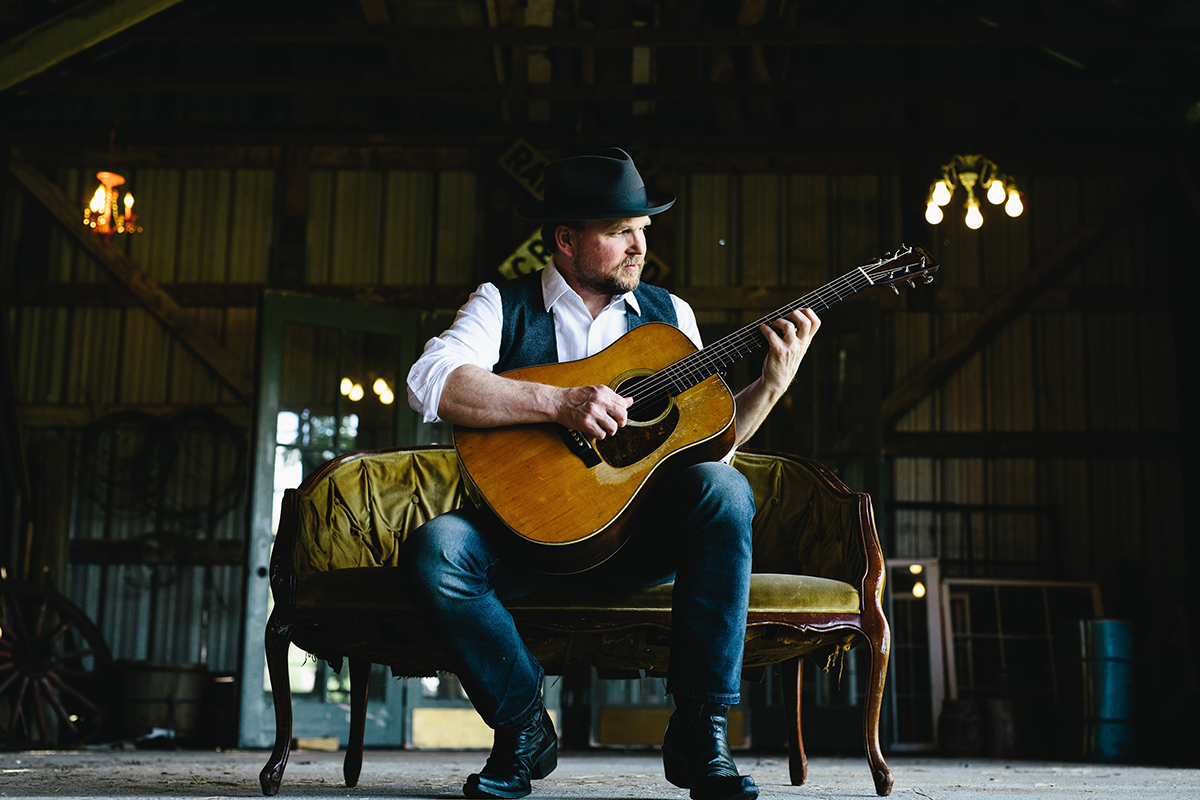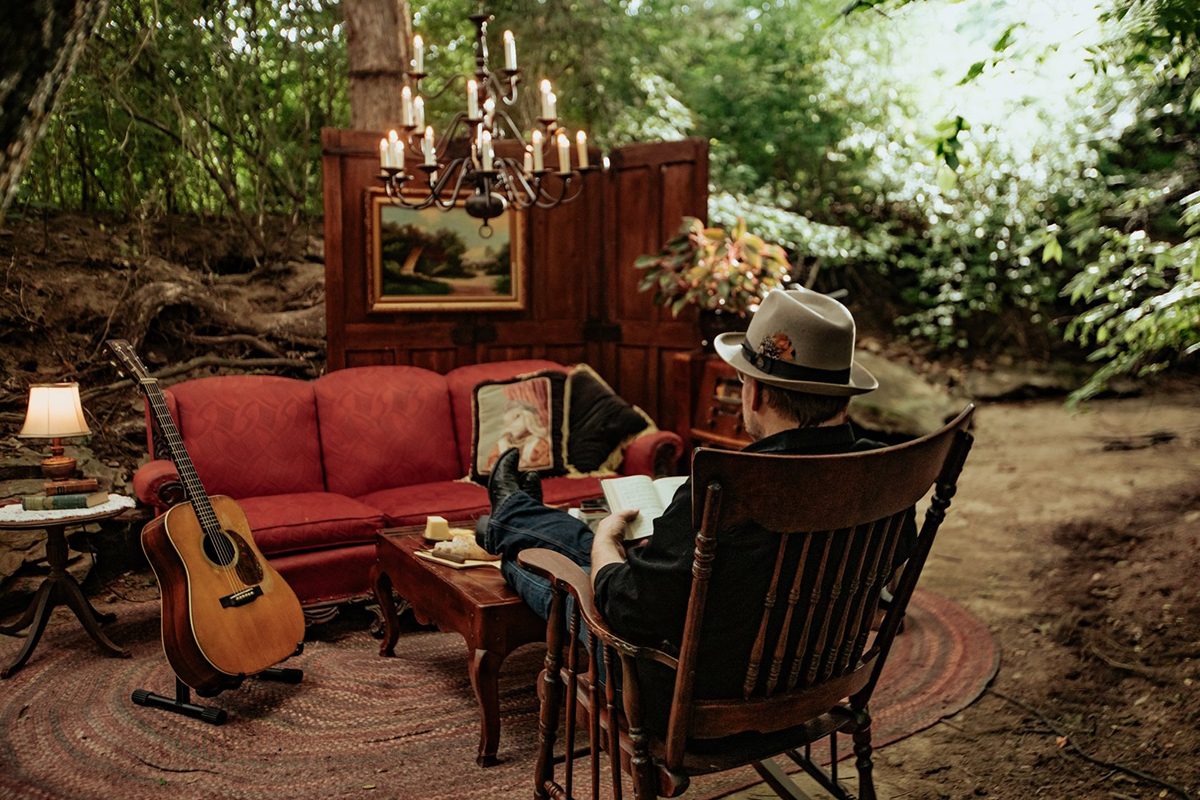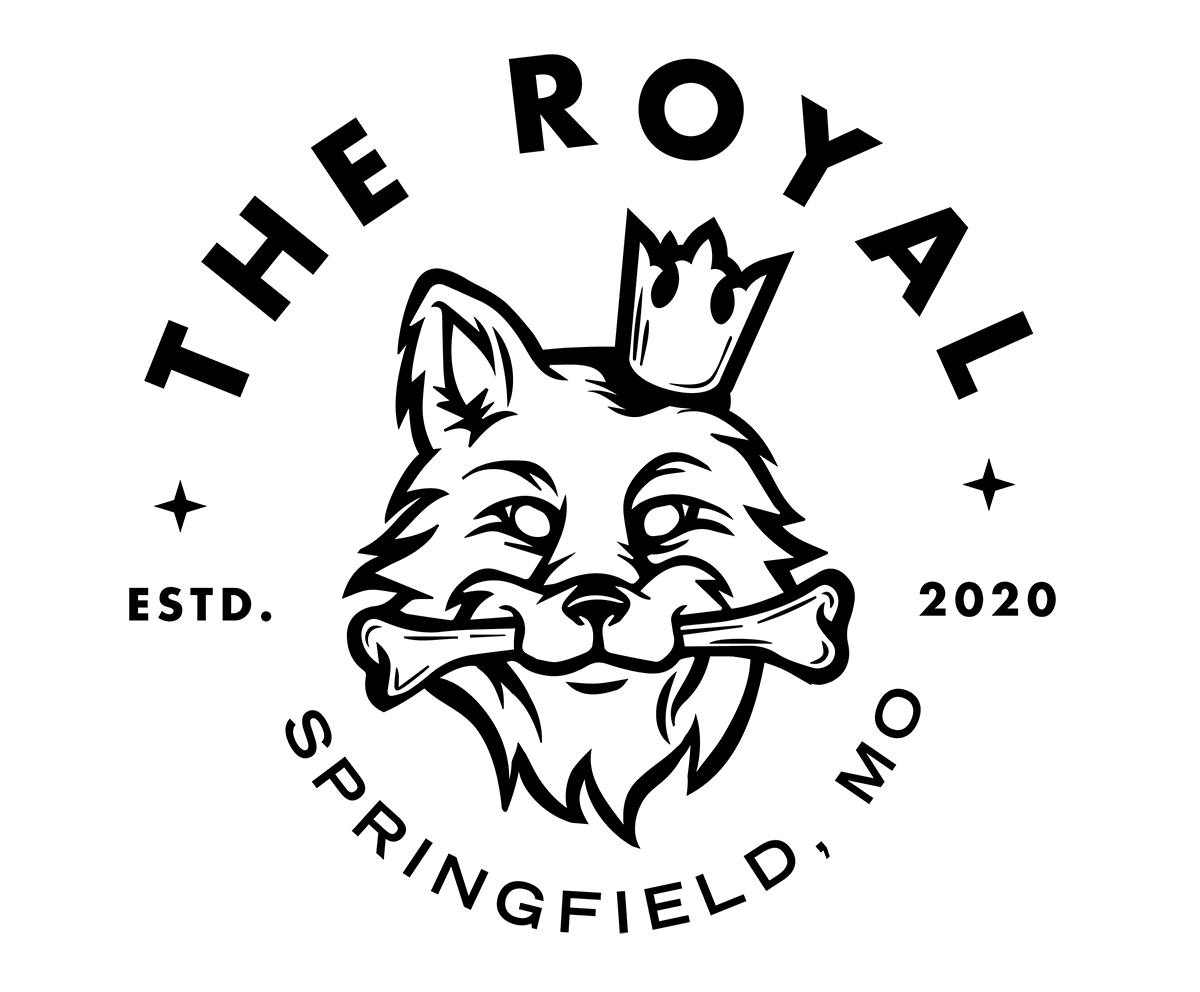20:20 — 20 Questions, 20 Answers
Published November 13, 2020
In Part 11 of our series,
Ron Block, winner of 14 Grammy Awards and member of Union Station—as in Alison Krauss & Union Station, Featuring Jerry Douglas—
answers queries from inquiring minds.
Join us as Ron recalls a run-in with the Secret Service when playing the ultimate house concert … the White House, recounts—as someone who has played everywhere—his favorite gigs and venues, and reveals the pleasure of working on the iconic soundtracks of O Brother, Where Art Thou? and Cold Mountain.
~NoteWorthy Music

Ron Block | Photo by Crystal K. Martel | Photos courtesy of Ron Block
20:20 with Ron Block
Ron: I was born in California to a dad with a music store and a mom who loved music. I started playing bluegrass in my early teens, played in local bands, joined a regional band called Weary Hearts with Eric Uglum, Mike Bub, and Butch Baldassari. Chris Jones joined later. Married my wife in 1988, moved to Nashville in 1990, and joined Alison Krauss & Union Station in 1991.
NWM 2): What not-so-obvious aspect of your life has been changed by the pandemic?
Ron: I realize just how much walking I do when I’m out on tour. I’ve done some at home, but it’s a lot less; we live out in the country so walking on the road is a bit strange. Fortunately we have a very long shared driveway and eight acres on which to indulge my roaming tendencies.
NWM 3): Name three things that make you smile.
Ron: Drinking a concoction I make with raw cacao in the morning. I never get tired of it. Being in a pub with my U.K./Ireland musical compadres. And always: Playing good music with people I like to be around.
NWM 4): Strangest road story?
Ron: One thing comes to mind:
I managed to get yelled at by the Secret Service at the White House.
I managed to get yelled at by the Secret Service at the White House. We were about to play as part of a Country Music night. President Obama was about to come in. I dropped my pick, instinctively bending down to pick it up, and the Secret Service agent said sternly and loudly, “Stand up for the President!” I stood up immediately, but mentally added, “Get up, you DOG!” along with imagining a backhanded slap to my face. Such is my overactive imagination.
NWM 5): You are perhaps best known for your work with Alison Krauss and Union Station—certainly a noteworthy gig—share a couple of highlights from your solo work and other collaborations.
Ron: One of my favorite things in the past few years has been working with Damien O’Kane and Kate Rusby. Kate does a similar thing with traditional U.K. music that we do with Alison; she takes old things and makes them new again, adds a new touch, a new life to them. She makes them uniquely her own. I’ve played on many of Kate’s albums in the last 10 years.
Damien is her bandleader, co-producer, and husband. He and I have done one duo banjo album together, a blend of Irish music and bluegrass we mostly composed ourselves. It’s called Banjophony, came out in 2018, and we’ve got most of the second one finished already. He’s a fantastic musician and has really recharged me musically in the past few years.
I’ve also enjoyed doing solo albums—Hogan’s House of Music (bluegrass instrumentals with high-level players), an album of peaceful guitar instrumentals, a gospel collaboration with Jeff Taylor and lyrics by Rebecca Reynolds, and two instrumental Christmas albums. I like making stuff.
Ron Block “Donne’s Passage” from A Light So Fair: Peaceful Guitar Instrumentals
Ron: We came off a Cayamo cruise ship not long before—a folk music cruise with a bunch of different styles. I was at home watching it develop, and then got the call that the Alison tour in April/May/June was going to be canceled, and not long after the tour I had with Damien O’Kane in July in the U.K. was also gone—postponed until July 2021.
NWM 7): What’s a favorite Ron Block song?
Ron: For songs that seem to hit a lot of people in the heart, “A Living Prayer” or “There Is a Reason.” One that I do a lot myself, which I wrote with Rebecca Reynolds, is “Ivy.” It’s just a good-feeling, fun song. For banjo tunes, I’ve written two I really like: “Battersea Skillet Liquor” and “Mollie Catherine Carter.”
NWM 8): You have performed everywhere one could imagine a guitar and banjo player playing. What venue or performance stands out?
Ron: We have played so many places, and quite often—like at the White House—I’ve looked over at Alison and said, “Pretty amazing to get to play stuff like this.” But for me, the main thing has always been the music. If it’s a good show with all the cylinders firing, it’s a good day.
For me, the main thing has always been the music.
I love old theaters, like the Fox Theatre in Atlanta. The Bank of New Hampshire Pavilion in Gilford is amazing, with a beautiful backstage. A treehouse, adult-sized Big Wheels. A giant chess set. Bikes. The catering there is ridiculously good.
One time Alison called and asked if I wanted to play a benefit in NYC. Jerry [Douglas] couldn’t do it, so it would just be Alison, myself, Barry [Bales], and Dan [Tyminski]. Of course, I said yes.
I got off the phone and my wife said, “What is it?” And I go, “We’re doing a benefit in NYC.” “What’s it for?” “I don’t know.”
So I fly up a month or so later with Alison and the guys, and walk into this massive place. We do soundcheck, and just before the show I call my wife. She goes, “So what is the benefit?” I said, “It’s the National Breast Cancer Awareness Benefit. From where I’m standing I can see Bill Clinton, [Rudy] Giuliani, Brooke Shields, and Tony Bennett.” My wife says, “Ohhh! Honey! It’s just … it’s just so wasted on you!” And she’s right in a way. It’s not that I don’t appreciate moments like that—I do. But we played well, and that’s always my takeaway.
NWM 9): What in particular fuels your inspiration? Tell us about your space or what is most necessary for your writing.
Ron: I have always been a wanderer. One thing that has always fueled my writing is traveling, especially to far-off places like Ireland, England, Wales, Scotland, Finland, Sweden, and other countries.
I have always been a wanderer.
I’m especially fond of England, Scotland, and Ireland due to my affinity for the music and writers like C.S. Lewis, G.K. Chesterton, George MacDonald, [J.R.R.] Tolkien, and others. Reading fuels my imagination. I also have a really nice studio space for recording, writing, creating, teaching, and doing videos.
NWM 10): What are your non-musical gifts/talents?
Ron: I like to write most days. I’m a fair hand with a camera, with a decent eye for a photo, but I need to work on my technical skills.

Photo by Crystal K. Martel
NWM 11): When did you join Union Station and what were the circumstances surrounding landing the gig?
Ron: Bluegrass has long been a jamming culture. Back when we were all coming up, in the late 1980s, we’d meet up at festivals our bands were playing at and we’d get together afterwards and jam.
Bluegrass has long been a jamming culture.
That’s how I got to know Barry Bales, Tim Stafford, and Adam Steffey (from a band called Dusty Miller), Alison, and Dan Tyminski (from The Lonesome River Band). I was in a band called Weary Hearts back then, and I was always thrilled to jam with all those people.
I moved to Nashville with my wife in 1990, later in the year. I played with Lynn Morris and Marshall Wilborn, who lived way up in Winchester, Virginia. It was really fun being the guitarist in the band, and Lynn and Marshall are stellar folks, but the drive was a killer—11 hours driving up there from our apartment, rehearsing, sleeping, then getting up to drive to a gig for four to eight hours the next morning. It couldn’t last without moving closer, so I had to quit. I tried out for and nearly joined Vern Gosdin’s band, but Alison called me to join before I’d decided.
NWM 12): Who (other than AK&US) does a favorite cover of a song you wrote?
Ron: The Forbes Family sang a version of a song I wrote called “In The Shadow of Your Wings” that I really loved, but I played on it with Barry, Dan, Adam Steffey, and Stuart Duncan, so that’s partly Union Station. I did really like Randy Travis’ version of “Which Way Will You Choose” and Adam Steffey’s version of “Trusting in Jesus.”
NWM 13): What are your before-you-go-on-stage rituals?
Ron: The entire show day is a ritual for me—walking, practicing guitar and banjo a lot, writing, letting conversations happen where they may, and often, napping. The main thing is maintaining a restful attitude as much as possible. One of the most important things is to have a bit of quiet time not long before the show, a time to reset priorities. I sit quietly and thank God that I get to play music, that the band is so good, that all those folks in the audience are happy to see us play. I try to take all the pressure off, so that when I walk out to play there is only a sense of sufficiency for the job and a feeling of “This is going to be a blast!”
The main thing during a show is to be fully present and in the moment, not worried about the past … or anxious about the future.
The main thing during a show is to be fully present and in the moment, not worried about the past (“I made a mistake in song two”) or anxious about the future (“I hope it goes well”). I prepare a lot during the day, but I do my best to let it all go and enjoy the present moment. It’s a total delight to play with great musicians for an audience that is really listening, so I may as well enjoy it while it’s happening.
NWM 14): Who might we be surprised to find on your playlist?
Ron: Glancing through my iTunes at things I listen to fairly regularly: Pat Metheny, Larry Carlton, Lonnie Johnson, Joni Mitchell, Django Reinhardt, Fernando Ortega, Madison Cunningham, Flook, Glenn Gould, Andres Segovia, Pablo Casals, Reverend Gary Davis, Gid Tanner and the Skillet Lickers, The Soul Stirrers with Sam Cooke, for starters.
NWM 15): You have received 14 Grammy Awards. One of them was for your work on O Brother, Where Art Thou?. What was it like to be involved in that project?
Ron: It was truly a great experience gathering together with all the different musicians for the preproduction recordings, and then the session at Sound Emporium in Nashville recording “Man of Constant Sorrow” was really fun. I felt like I was in an old-school bluegrass band.
But the most fun, and possibly the most fun I’ve ever had on tour, was the two tours that came out of O Brother and Cold Mountain—the Down from the Mountain Tour [O Brother] and the Great High Mountain Tour. To be on the road daily with that many fantastic musicians and heroes every day for two months, and then to get to do it all over again with most of the same musicians plus a lot of old-time players was rejuvenating.
Near the end I brought a bunch of records—Emmylou Harris, Ralph Stanley, Ricky Skaggs, the Whites, and they all so very kindly signed them for me. I was never an “autograph” person growing up, but I felt like I knew them well enough after touring that I felt comfortable asking. And I’m sure glad I got Ralph’s.

Photo by Tanner Morris
Ron: I write, generally prose, and often on spiritual topics. I do a lot of journaling. I’ve been writing since I was a teenager.
Photography is another thing I get into frequently, especially when traveling, but also I like walking around our farm here and taking shots of small things no one would notice—water droplets hanging off a berry, a dead leaf suspended by a spider’s web.
I like … taking shots of small things no one would notice.
I have a compound bow I shot a bunch for several years, but I haven’t for the past two or three; I need to get that out again.
NWM 17): What was your first concert as a fan?
Ron: I think it was the bluegrass festival in Norco, California, when I was about 15 or 16. I went there every time after that, and started playing there in local bands, until I moved away.
NWM 18): Dylan or Cohen?
Ron: I love the old Bob Dylan stuff, especially. I love hearing his love for the old music. I don’t know Cohen’s music that well.
We opened for Dylan in ’95, and Alison was walking back from his dressing room with a signed copy of his book of lyrics. I said, “Wow!” and she said, “Do you want me to get one signed for you?” I ran to merch and bought one, and Alison took it into Dylan to get it signed.
NWM 19): Do you think 2020 will be looked back upon as a songwriters’ renaissance?
Ron: It might be. I know it’s made me more creative in a lot of ways.
The last thing anyone needs to be doing is collapsing and giving up.
I said to my banjo compadre, Damien O’Kane, at the beginning of COVID that this will be a time when resilient musicians will dig deep and look for new ways of making music and making a living—that resilient people will rule in this time. The last thing anyone needs to be doing is collapsing and giving up.
NWM 20): What is one thing you would want our readers to know about which we might not know to ask?
Ron: I would love for all people, especially musicians, to go back and listen to older music a lot more. I don’t mean 1993. I mean 1930s, 1940s. 50s, 60s, 70s. I mean dig into the archives.
Music has changed a lot, and sometimes it gets too far away from the human heart and caters only to the human appetites. There’s some music these days that is created through corporate graphs and demographic charts of “what the consumer wants.” Not that there hasn’t been music like that in the past, of course. But now we have big data.
Sometimes [music] gets too far away from the human heart and caters only to the human appetites.
But as artists, we’re not making cheeseburgers for listeners to gulp down while at a party. We also help people sort things out. We’re not here solely to give people what they want; we can also give them some of what they need. It’s not merely entertainment, like the novelty of a performing monkey or the singing, dancing frog in the Looney Tunes cartoon.
And Further
Thanks for having me here! I’m preparing an online guitar course right now, and there is a tension between giving people what is fun and what is most beneficial. The solution is to give both—to keep the enjoyment going but at the same time give what they need to become better guitarists.
Music is like that. Music is not solely for entertainment, or to use for working out, or to play as a soundtrack for parties. It’s there to inform, to infuse, to give us a cathartic experience where we feel things we don’t normally let ourselves feel. Music is there to show us, “You are known. We are all human beings.”
Music is there to show us, “You are known. We are all human beings.”
I’m preparing an online guitar course starting that digs into the roots and tools of my style with Alison. It’ll be four sessions, two hours each, with bonus lessons added the next day or so. The whole thing will be put up for participants to access online, with tablature. I’m throwing in free my book of transcriptions of my bluegrass guitar heroes I did in the late 1980s, long out-of-print, called The Traditional Guitar Workbook, along with two of my albums: Hogan’s House of Music, which is a bluegrass instrumental album with all kinds of modern bluegrass heroes, and A Light So Fair: Peaceful Guitar Instrumentals, which is just my guitar playing with some singers like Kate Rusby, Damien O’Kane, Sierra Hull, Suzanne Cox of the Cox Family, and my daughter Erica.
After that I’ll be finishing up the second duo-banjo album with Damien, and I’ve got lots of other plans for 2021.
Ron Block “Behind The Scenes” music video for Hogan’s House of Music featuring the song, “Smartville”

Ron Block
Photo by Tanner Morris
Ron Block joined Alison Krauss and Union Station in October 1991. The following year, they recorded the album Every Time You Say Goodbye now considered a modern bluegrass classic. The album earned a 1993 Grammy for Best Bluegrass Album, the first of 14 Grammys so far. Block’s tenure with AK&US includes touring with megastars Willie Nelson and Garth Brooks and performing at the White House as well as appearing in O Brother, Where Art Thou? and the resulting Down from the Mountain Tour, featuring performers from the O Brother soundtrack.
He is currently finishing up a Banjocaster project with Jay Bellerose from the Alison/Robert Plant album Raising Sand on drums and Vik Krauss (longtime Lyle Lovett bassist) on several tracks.
To learn more and buy stuff visit Ron at RonBlock.com and facebook.com/ronblockmusic
You may enjoy our previous 20:20 with Forest Sun.
This is our art. Please consider leaving a tip. If not, that's okay too! Enjoy and share.
We thank our sponsors for their support! Check them out!
Experience world-famous live entertainment, thrilling attractions, outdoor adventure, delicious food, and genuine Ozarks hospitality. In Branson, precious moments with your family become memories that last a lifetime. No matter what your crew enjoys doing, Branson offers activities and natural wonders that will transform your visit into an unforgettable experience. Start planning your trip at www.ExploreBranson.com
The Acoustic Shoppe in Springfield, Missouri, serves musicians and students around the world, through online and in-person sales and instruction. Their teaching studio, The Academy, is a state-of-the-art music learning program that allows students to learn at their own pace with top teachers. The shop carries high-quality instruments at every price-point, all expertly set up and ready for you to play.
The Royal is an intimate space for music, refined bar food, upscale dive-bar drinks, and non-alcoholic options. We focus on music—live performances, vinyl, and curated playlists—60's Brit-pop, new wave classics, or Latin/world music. We specialize in listening room shows. Artists pour their life into their craft and deserve our attention. Swing by for a cocktail, snack, and conversation about music.
NoteWorthy Music is a music journal and salon platform supporting the music industry and giving voice to a growing chorus of diverse artists. We are transgenre, embracing art without labels. We celebrate art and artists by honoring the genuine creation and spirit of all who create and by receiving all art with respect and kindness—and without prejudice.
The views and opinions expressed by our guests are theirs and do not necessarily reflect nor represent the views and opinions of NoteWorthy Music or its staff.
Layout and Design by Bambi Grinder




